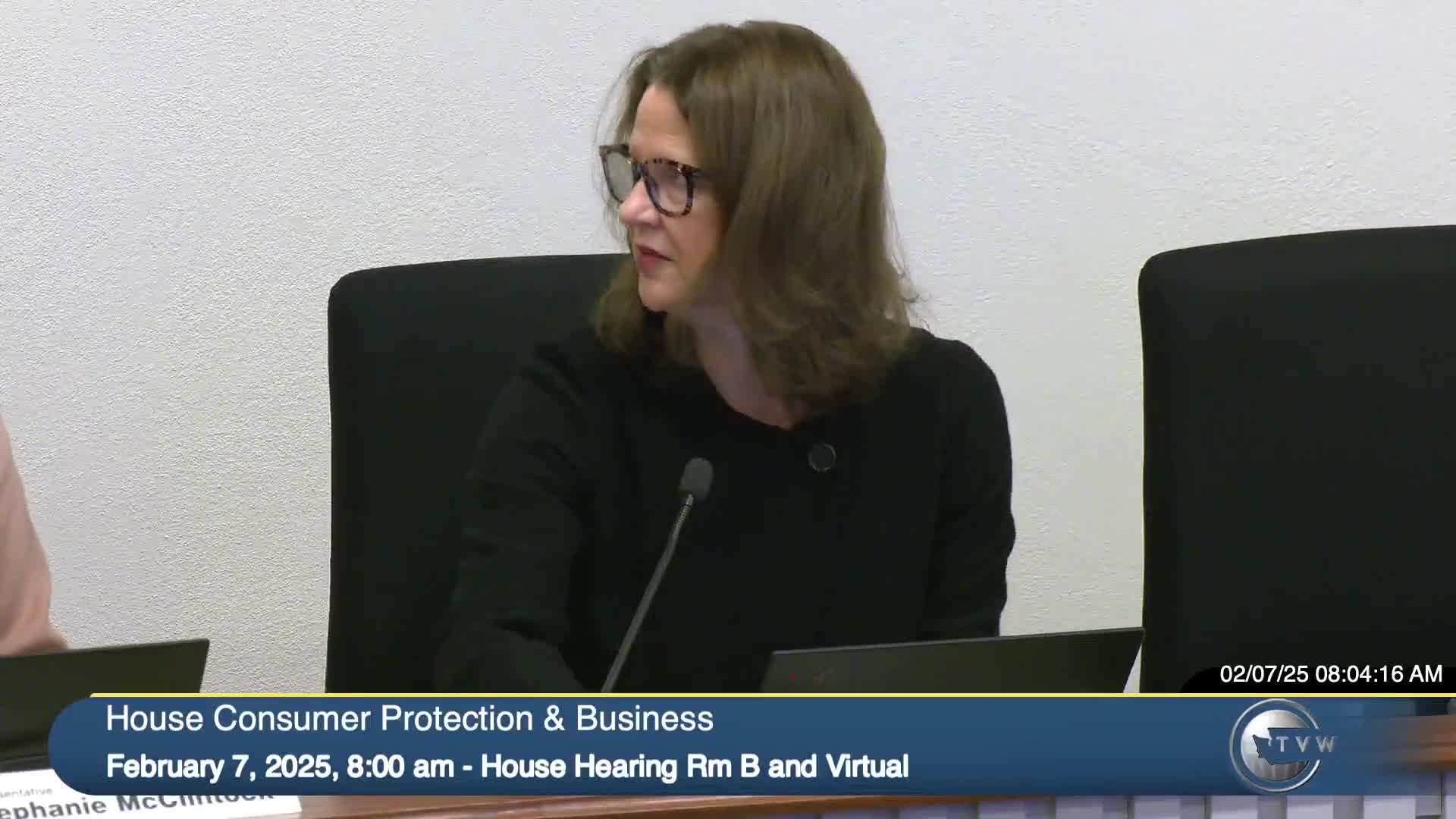Committee reviews House Bill 1505, a technical update to the state insurance code including hearing-aid coverage and public-records changes
Get AI-powered insights, summaries, and transcripts
Subscribe
Summary
House Bill 1505, a technical revision to Washington’s insurance code, drew a staff briefing and questions from committee members at the Consumer Protection & Business Committee meeting on Feb. 7.
House Bill 1505, a technical revision to Washington’s insurance code, drew a staff briefing and questions from committee members at the Consumer Protection & Business Committee meeting on Feb. 7.
Peter Clodfelter, committee staff, said the bill makes “various revisions to the insurance code” affecting public records, tax refunds, reporting requirements, motor vehicle insurance, health insurance and related items. He asked members to consult the bill analysis for full detail.
The bill would add a Public Records Act exemption for information the Office of the Insurance Commissioner obtains from “direct practice” health care providers’ annual reports, which can include counts of riders, total patients served, average fees and provider names. Clodfelter said the exemption was among the changes.
Rory Payne Donovan of the Office of the Insurance Commissioner told the committee the bill is intended mainly as a cleanup measure and to align state code with more recent law and marketplace practice. “This is, you know, a true cleanup bill in its intent,” Donovan said, and he noted it updates the code on hearing-aid benefits so it conforms to federal essential-benefit requirements that take effect Jan. 1.
Donovan pointed to several substantive changes described in the staff briefing: the Public Records Act exemption for the commissioner’s provider data; a clarification of the timeline for requesting tax refunds so a person must seek a refund within six years of the end of the calendar year for which taxes were owed (rather than six years from the date taxes were paid); removal of reporting requirements tied to past, now-completed studies; and removal of an outdated statutory requirement that ratemaking for motor-vehicle insurance give due consideration to anticipated loss changes attributable to devices such as seat belts and certain lights.
On health coverage, staff described an amendment to require carriers to include coverage for hearing instruments for plans issued or renewed on or after Jan. 1, 2026. Clodfelter summarized the provision as adding hearing-instrument coverage, “including bone conduction hearing devices,” and stated an amount of coverage and frequency as part of the bill language. Donovan described that provision as aligning with essential-benefit rules and said the change was requested by stakeholders.
Committee members asked follow-up questions. Representative Abarno asked why the bill would add another Public Records Act carve‑out for commissioner-submitted information, noting that much of the annual data is aggregate and used for legislative oversight. Donovan said he would follow up with staff and provide an answer. Representatives Santos and Reeves questioned the part of the bill that would strike statutory language that automatically enrolled newborns in a parent’s plan; Donovan said the auto‑enrollment issue is separate from the hearing-aid provision and that he would provide more detail to those members.
No final action was taken; the committee closed the public hearing and moved to the next bill on the agenda.
Why it matters: HB 1505 bundles several technical and maintenance changes to the insurance code that could affect disclosure of provider-level data, timing for tax refunds related to insurance taxes, statutory rate-making language for motor-vehicle insurance, and coverage requirements for hearing instruments. Some members asked for clarifications about the Public Records Act exemption and the reason for removing automatic newborn enrollment language.
What’s next: Committee staff and the Office of the Insurance Commissioner said they will provide follow-up detail requested by members.
